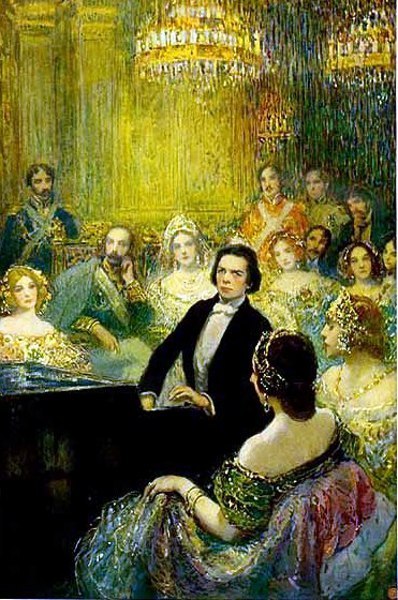#Anton Rubinstein
Text
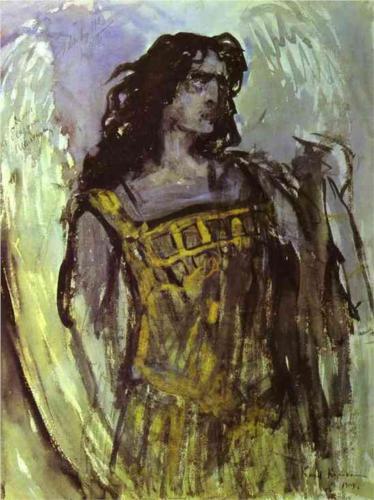
youtube
6 notes
·
View notes
Text
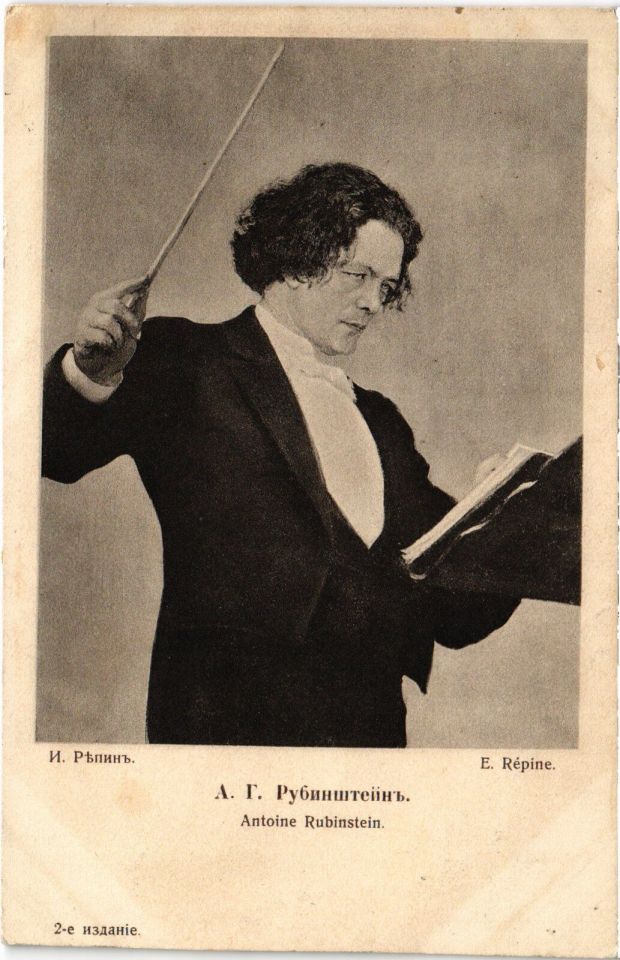
Russian pianist and composer Anton Rubinstein on a vintage postcard
#postkaart#carte postale#briefkaart#old#russian#sepia#rubinstein#pianist#postkarte#vintage#postal#photography#ephemera#anton rubinstein#postcard#anton#tarjeta#photo#ansichtskarte#composer#historic
3 notes
·
View notes
Text
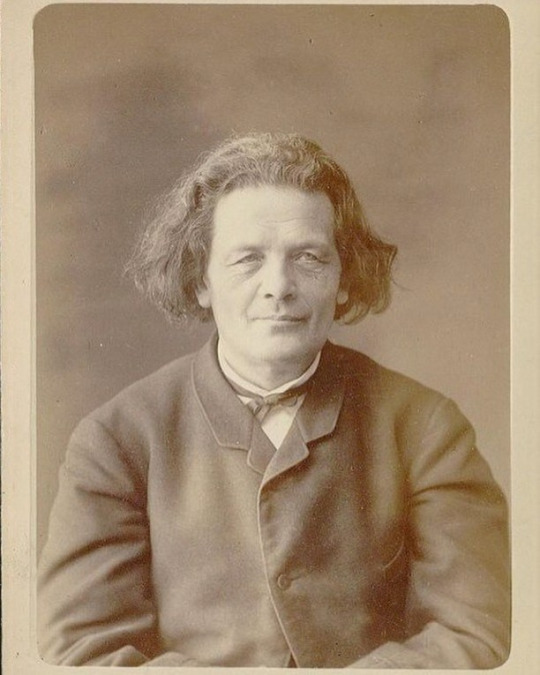
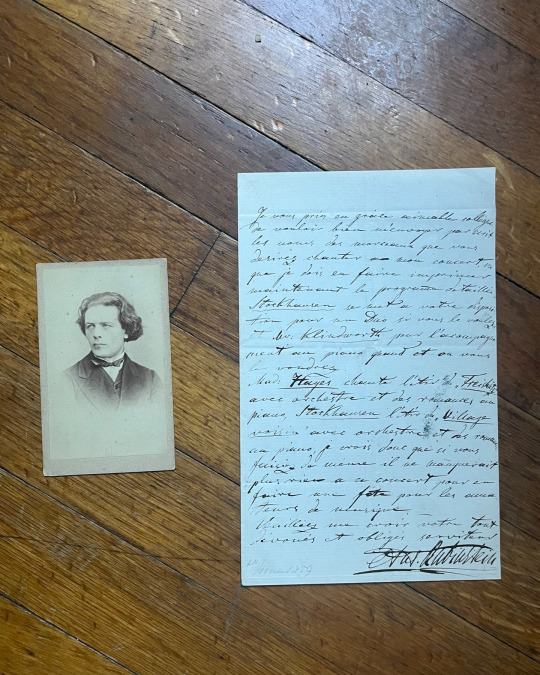


OTD in Music History: Pianist, composer, and pedagogue Anton Rubinstein (1829 - 1894) gives his final public concert in St. Petersburg in 1894. With his health failing, Rubinstein moved back to Peterhof shortly thereafter, where he passed away from heart failure at the end of the year.
Rubinstein was undoubtedly one of the most historically consequential Russian musicians in history.
The founder of the famed St. Petersburg Conservatory, Rubinstein was also one of the most celebrated virtuoso pianists of the 19th Century. He was the primary piano teacher of fellow legendary concert pianist Josef Hofmann (1876 - 1957), as well as the primary composition teacher of Pyotr Tchaikovsky (1840 - 1893).
Although he best remembered today for his importance as a pianist and a pedagogue, Rubinstein was also a prolific composer in his own right: He wrote more than 20 operas, the best known being "The Demon" (which continues to hold the stage in Russia). Rubinstein also composed six symphonies, five piano concertos, and a slew of solo piano works and chamber music... although aside from "The Demon," almost none of his music is still heard today...
PICTURED: A c. 1880s photograph that shows the middle-aged Rubinstein coming as close as he ever came to smiling for the camera.
Also shown is an original c. 1850s "carte de visite" photograph showing the young Rubinstein (who always liked to highlight his pronounced facial similarity to Ludwig van Beethoven [1770 - 1827]), as well as an autograph letter that Rubinstein wrote to a colleague in 1859.
In this letter, Rubinstein mentions a performance of Carl Maria von Weber’s (1786 - 1826) opera “Der Freischutz” (1821), and repeatedly references Karl Klindworth (1830 - 1916) -- a piano student of Franz Liszt (1811 – 1886) who went on to have an important career teaching at the Moscow Conservatory and later served as the principal conductor of the Berlin Philharmonic. Klindworth was on such friendly terms with Richard Wagner (1813 – 1883) that he was actually tasked with preparing the piano-vocal scores for several of Wagner's mature operas.
#classical music#opera#music history#bel canto#composer#classical composer#aria#classical studies#maestro#chest voice#Anton Rubinstein#Pianist#classical Pianist#pedagogue#concert#Demon#classical musician#classical musicians#classical history#history of music#historian of music#musicians#musician#diva#prima donna
5 notes
·
View notes
Text
youtube
Anton Rubinstein (1829-1894) - 6 Preludes and Fugues, Op. 53, No. 6 in C Minor "Dedicated to Selmar Bagge": II. Fugue ·
Sontraud Speidel, piano
3 notes
·
View notes
Text
Happy birthday Anton Rubinstein
1 note
·
View note
Text
Today in Christian History
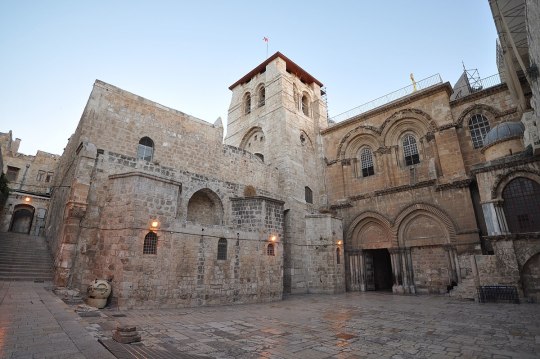
Today is Monday, May 1st, the 121st day of 2023. There are 244 days left in the year.
Today’s Highlight in History:
1532: Arrest of Maria Cazzala in Toledo, Spain, accused of Lutheranism. Her trial will drag on for years and include torture.
1839: Baptism in Bombay of Dhanjibhai Naoroji, formerly a Parsi. Despite threats, bribes, and false testimony against him, he will train for the ministry in Scotland and become an evangelist, translator, educator, and leader in the Indian church.
1883: Anton Rubinstein’s sacred opera The Tower of Babel is given in Boston by the Handel and Haydn Society.
1893: Measures against Stundists (Baptists) are set to go into effect in Czarist Russia. This includes taking their children and placing them in care of Russian Orthodox Church believers, identifying them as sectarians on their passports, prohibiting them from operating schools for their children, limiting their hire, and forbidding them burial in consecrated ground.
1955: Baptism of Esperança Berta, who will become a notable woman in the Anglican Church of Mozambique—bishop’s wife, church planter, and inspirational leader. Five thousand people will turn out for her funeral in 1998.
1982: Death of Ralph Darby Williams. The Assembly of God missionary had spent his life equipping South American saints.
1992: A mob of several hundred Muslims rushes the Assembly of God Church at Imbaba, a poor section of Cairo, after attending Friday prayer at the mosque.
#Today in Christian History#May 1#baptism of Dhanjibhai Naoroji#Baptism of Esperança Berta#Arrest of Maria Cazzala#Death of Ralph Darby Williams
5 notes
·
View notes
Photo
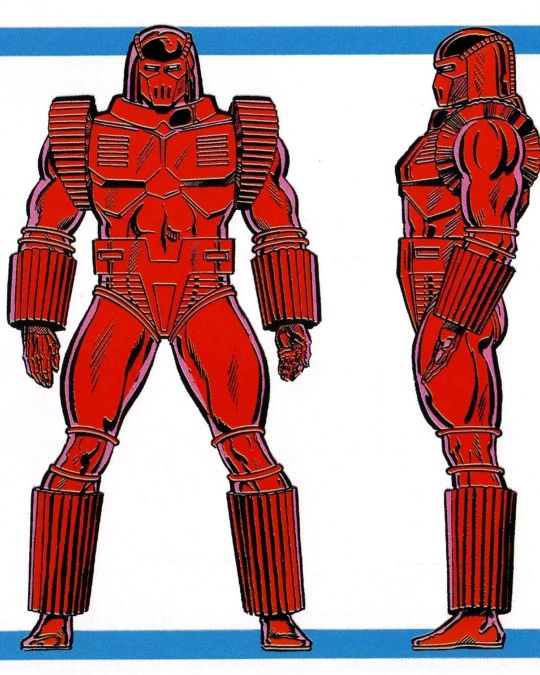
Crimson Dynamo! . Many people have been the Crimson Dynamo over the years, including Anton Vanko, Boris Turgenov, Alex Nevsky, Yuri Petrovich, Dimitri Bucharin and Valentin Shatalov. . What's your opinion on the Crimson Dynamo? . 1st - 4th slide is from the Official Handbook of the Marvel Universe v3 5 (1991) by Keith Pollard and Josef Rubinstein. 5th slide art is by Don Heck, Steve Ellis, Mike Zeck, Bob Layton, Tom Morgan and Javier Saltares. 6th slide art is by Gabrielle Dell'Otto and Patrick Zircher. 8th slide is from Iron Man 316 (1995) by Tom Morgan. . #crimsondynamo #ironman #90s #60s #antonvanko #avengers #supervillain #superhero https://www.instagram.com/p/CgAa5URsRZ0/?igshid=NGJjMDIxMWI=
3 notes
·
View notes
Text
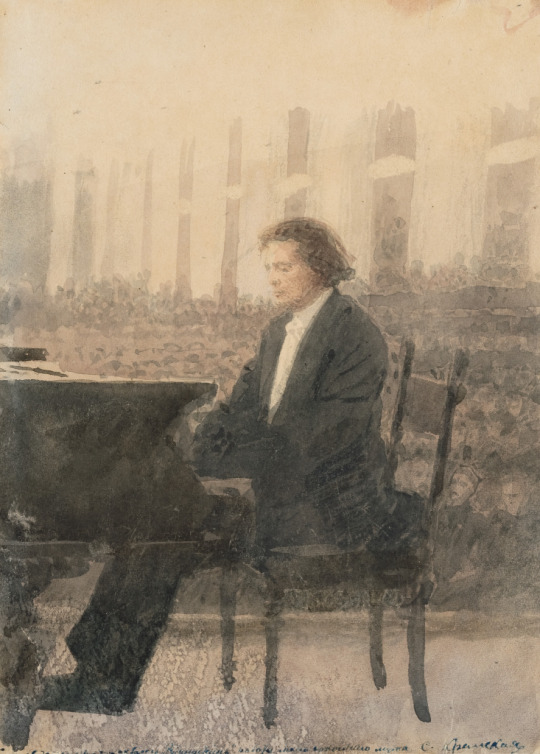
Kramskoy Iván (1837-1887)
RETRATO DEL COMPOSITOR A.G. RUBINSTEIN
1880
Tamaño - 18,2 x 13,3
Material - papel
Técnica - acuarela, tinta
Número de inventario - Inv.11322
Recibido del Museo de Iconografía y Pintura. ES. Ostroukhov. 1929
Una de las últimas obras de I.N. Kramskoy es una gran pintura "Concierto de A.G. Rubinstein en el Salón de la Asamblea de la Nobleza de San Petersburgo”, en el que el artista trabajó en 1885-1887 y que aún pertenece al Conservatorio de San Petersburgo. El artista hizo muchos bocetos de la naturaleza y bocetos de álbumes para él directamente durante los conciertos del músico. En 1885-1886, A.G. Rubinstein (1829–1894), compositor, pianista virtuoso, iniciador de la creación, director y profesor del Conservatorio de San Petersburgo, ofreció una serie de Conciertos Históricos en San Petersburgo, Moscú y los centros musicales de Europa. El salón de la Asamblea de la Nobleza se convirtió en su plataforma de Petersburgo.
Ahora es el Gran Salón de la Filarmónica de San Petersburgo que lleva el nombre de D.S. Shostakóvich. A lo largo del siglo XIX, aquí se celebraron bailes seculares y conciertos musicales, que se convirtieron en una característica integral de la vida metropolitana. Celebridades de fama mundial del mundo musical como Robert Schumann, Franz Liszt, Richard Wagner y muchos otros actuaron en este escenario. Los "conciertos históricos" de Anton Rubinstein fueron percibidos como el evento más importante en el mundo de la música. Quizás es por eso que durante muchos años no respondió a las solicitudes de P.M. Tretyakov para pintar un retrato del músico Kramskoy, impresionado por los conciertos, se dispuso a realizar este pedido. En sus dibujos preparatorios, muchos de los cuales se conservan en la Galería Tretyakov, el artista captura los eventos y detalles de las veladas musicales hasta el más mínimo detalle: representa la figura de un pianista desde varios ángulos, por separado sus manos, público, fragmentos del interior de la sala, incluidos sus famosos candelabros. Ligeramente tocado con dibujo a lápiz de acuarela de A.G. Rubinstein al piano: la matriz compositiva del futuro lienzo.
Información e imagen de la web de la Galería Tretyakov.
1 note
·
View note
Text
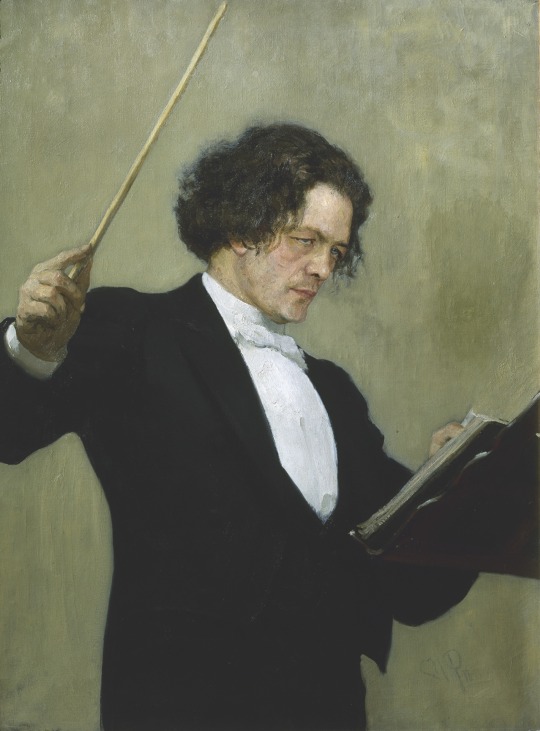
PORTRAIT OF ANTON RUBINSTEIN
Ilya Repin, 1887, Realism
0 notes
Text
Birthdays 11.28
Beer Birthdays
Rob Fullmer (1966)
Wil Turner (1967)
Five Favorite Birthdays
William Blake; English writer (1757)
Friedrich Engels; German philosopher (1820)
Ed Harris; actor (1950)
Jon Stewart; comedian, television show host (1962)
Mary Elizabeth Winstead; actor (1984)
Famous Birthdays
Laura Antonelli; Italian actor (1941)
Brooks Atkinson; journalist (1894)
Henry Bacon; architect (1866)
Rita Mae Brown; writer (1944)
John Bunyan; English writer (1628)
Irwin Edman; philosopher (1896)
Ethel Ennis; jazz singer (1934)
Berry Gordy; Motown founder (1929)
Alexander Godunov; ballet dancer (1949)
Gloria Grahame; actor (1923)
John Wesley Hyatt; inventor (1837)
Jose Iturbi; pianist, orchestra conductor (1895)
Hope Lange; actor (1933)
Claude Levi-Strauss; French philosopher (1908)
Nancy Mitford; English writer (1904)
Judd Nelson; actor (1959)
Randy Newman; po singer, songwriter (1943)
Michael Ritchie; film director (1938)
Dawn Robinson; pop singer (1968)
Anton Rubinstein; pianist (1829)
Paul Shaffer; rock pianist, bandleader (1949)
Anna Nicole Smith; model, actor (1967)
Lexington Steele; porn actor (1969)
Dick Vance; trumpet player (1915)
Paul Warfield; Miami Dolphins WR (1942)
Matt Williams; San Francisco Giants 3B (1965)
0 notes
Text
Don Quixote

Rubinstein um 1887, Gemälde von Ilja Repin
„Den Juden bin ich ein Christ, den Christen ein Jude; den Russen bin ich ein Deutscher, den Deutschen ein Russe, den Klassikern ein Zukünftler, den Zukünftlern ein Retrograder u.s.w. Schlußfolgerung: ich bin weder Fisch noch Fleisch – ein jammervolles Individuum.“
(Quelle)
Anton Rubinstein : Don Quixote, Musical Picture after Cervantes Op. 87 (1870):
youtube
#classical music#artlovers#oldeurope#history#romantic literature#classical literature#romantic music#Youtube
0 notes
Text
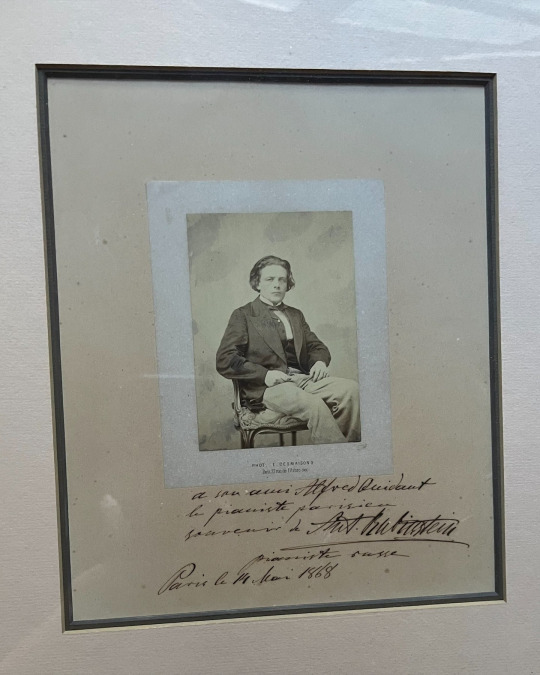
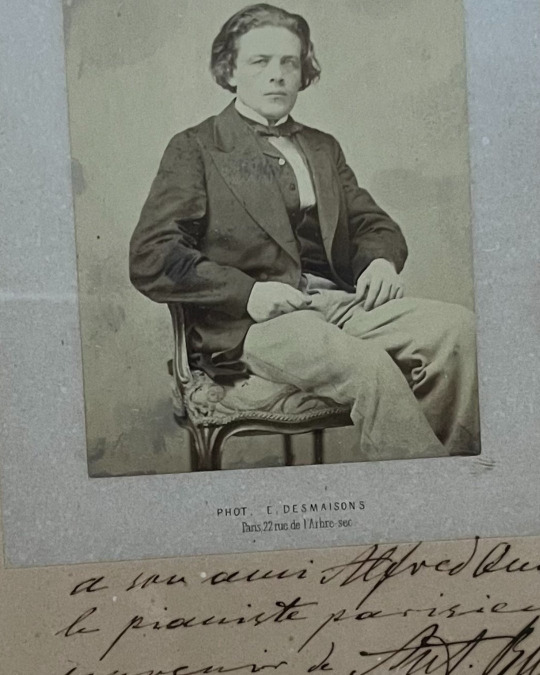
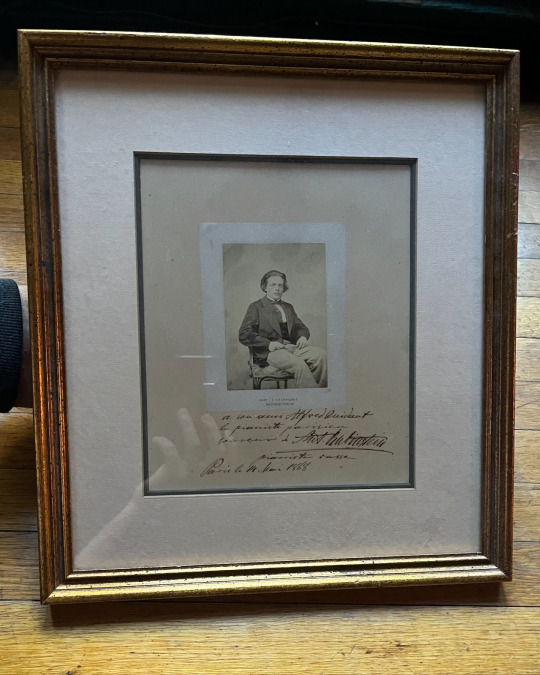
OTD in Music History: Legendary Russian pianist, composer, and pedagogue Anton Rubinstein (1829 - 1894) meets Frederic Chopin (1810 - 1849) and Franz Liszt (1811 - 1886) for the first time, in 1841, following a concert in Paris.
As Rubinstein recounted nearly half a century later in his "Autobiography" (1890):
“For a whole year I remained in Paris, but I had no lessons, except in music with Alexander Villoing [(1804 - 1878), who was a student of John Field (1782 - 1837), the inventor of the "nocturne"]… I gave several concerts, generally in the piano rooms of some famous factory... At one of these concerts, Liszt, Chopin, and other musical celebrities were present… It was then that I also played with the Belgian violinist [Henri] Vieuxtemps [(1820 - 1881)]…"
The January 10, 1841 issue of “Le Ménestrel” confirms Rubinstein's arrival in Paris (p. 4):
“There is much talk now of a young Russian pianist, M. Rubinstein, who has just arrived in Paris with his teacher…"
And the fateful meeting itself was recorded in the March 28 edition of “La France Musicale” (p. 106):
“A very young pianist—a ten years old boy—M. Rubinstein, convened this week in the halls of M. Pleyel quite a number of fans and artists. This wonder pianist performs the most difficult music with ease, agility, and a feeling that he could serve as an example to many pianists who have passed the age of majority. M. Cramer, M. Kalkbrenner, M. Liszt, M. Chopin, M. Wolff, and M. Leopold Mayer… applauded from time to time together with the audience…"
Rubinstein would go on to become one of the most important Russian musicians in history, founding the St. Petersburg Conservatory and teaching (among many others) fellow legendary pianist Josef Hofmann (1876 - 1957).
PICTURED: A very early photograph of Rubinstein, which he signed and dated in May 1868 and inscribed to a friend during a later trip to Paris (the day after he conducted the premiere of Camille Saint-Saens’s [1835 - 1921] 2nd Piano Concerto, with the composer playing the piano).
#Anton Rubinstein#Rubinstein#opera#classical music#music history#bel canto#composer#aria#classical composer#pianist#classical pianist#conductor#The Demon#Conducting#Teacher#music Teacher#pedagogue#St. Petersburg Conservatory#Symphony#Piano concerto#concerto#concert#chest voice#maestro#bel cnato#classical musicians#classical musician#Paris Conservatoire
3 notes
·
View notes
Text
youtube
Anton Rubinstein (1829-1894) - 5 Morceaux Op.69
00:00 - Caprice 04:26 - Nocturne 08:06 - Scherzo 13:09 - Romance 19:41 - Toccata
Fabio Glasso - Piano
2 notes
·
View notes
Text
youtube
succumbing to the monster while music drifts up from downstairs | classical loop 4hrs
you’ve been so weak the past few days. at first, you’d just been frustrated—being ill means missing the ball that you’d put so much work into preparing. but now all you feel is tired. drained. and you’ve been sleeping so fitfully that you’ve begun to suspect that the sleep is actually making your condition worse instead of restoring you.
you can hear the orchestra’s music drifting up from downstairs, lively and gay, but you don’t even have the energy to resent the fact that you’re not down there. you’re just…so tired.
you begin to drift in and out of consciousness, unable to get truly comfortable in your bed. and at some point, you’re too weak to even toss and turn. it’s as if there is a heavy weight sitting on your chest and it’s all you can do to just continue breathing.
through the haze of your fluttering awareness, you think you see something solid above you. a face in the darkness, with eyes burning red like coals. you shut your eyes against it. an hallucination, surely. but then you feel the weight on your chest shift. and a pain searing through your neck.
you can still hear the music, through it all.
the nightmare - henry fuseli c.1781 | the demon, ballet arrangement - anton rubinstein c.1871
1 note
·
View note
Quote
Prokofiev – Piano Concerto no. 1
Imagine, if you can, being a professor at a music conservatory at the beginning of the 20th century, and you are familiar with great piano concertos in the tradition, like Tchaikovsky’s first, Chopin’s two concertos, Grieg’s…and then one of the students performs his first concerto for a competition: it starts with a grand statement from the orchestra, that immediately becomes something…awkward. The main theme is kind of silly, the orchestration and harmonies are harsh, and then the pianist bursts forward with ridiculous toccata like passages. The whole work is only 16 minutes, and it is one continuous movement, that is almost like three short movements in one. I imagine it had to be jarring when the young Prokofiev first played it. He hoped to win the Anton Rubinstein competition at the Saint Petersburg conservatory, and figured that he may not have a chance playing a well known classical concerto, but if he played something original, they wouldn’t notice any mistakes if he made them. Surprising, to me, the judges awarded him the prize. I expected more stuffy, conservative academics, to laugh this work off, but they appreciated the unique sound. I think it’s a brilliant little work that shows Prokofiev’s genius, with its dizzying notes, its mock grander, and its serious and mysterious sounds at times.
Movements [without pause]:
1. Allegro brioso
2. Andante assai
3. Allegro scherzando
mikrokosmos: Prokofiev – Piano Concerto no. 1 Imagine, if you can, being a professor at a music conservatory at the beginning of the 20th century, and you are familiar with great piano concertos in the tradition, like Tchaikovsky’s first, Chopin’s two concertos, Grieg’s…and then one of the students performs his first concerto for a competition:…
0 notes
